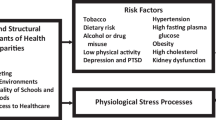Abstract
Sometimes people desire that their lives go badly, take pleasure in their lives going badly, or believe that their lives are going badly. As a result, some popular theories of welfare are paradoxical. I show that no attempt to defend those theories from the paradox fully succeeds.
Similar content being viewed by others
References
Adams, R. (1999). Finite and infinite goods. New York: Oxford University Press.
Carson, T. (2000). Value and the good life. Notre Dame, Ind.: University of Notre Dame Press.
Feldman, F. (2004). Pleasure and the good life: Concerning the nature, varieties, and plausibility of hedonism. New York: Oxford University Press.
Heathwood, C. (2005). The problem of defective desires. Australasian Journal of Philosophy, 83, 487–504.
Hurka, T. (2001). Virtue, vice and value. New York: Oxford University Press.
Keller, S. (2004). Welfare and the achievement of goals. Philosophical Studies, 121, 27–41.
Kirkham, R. (1995). Theories of truth. Cambridge, Mass.: The MIT Press.
Kraut, R. (1994). Desire and the human good. Proceedings and Addresses of the American Philosophical Association, 68, 39–54.
Moore, G. E. (1993). Principia ethica. New York: Cambridge University Press (First published 1903).
Nagel, T. (1979). Death. In Nagel (Ed.), Mortal questions (pp. 1–11). Cambridge: Cambridge University Press.
Nozick, R. (1974). Anarchy, state and Utopia. New York: Basic Books.
Prior, A. (1961). On a family of paradoxes. Notre Dame Journal of Formal Logic, 2, 16–32.
Ross, W. D. (1988). The right and the good. Indianapolis, Ind.: Hackett Publishing Company (First published 1930).
Russell, B. (1971). Mathematical logic as based on the theory of types. In Russell (Ed.), Logic and knowledge. New York: Capricorn Books (First published 1908).
Acknowledgement
Thanks to Jordan Dodd and Matt Skene for their comments in my seminar on intrinsic value at Syracuse University in Spring 2005; thanks to JC Beall, Campbell Brown, Richard Chappell, James Dreier, Fred Feldman, Chris Heathwood, Mark Lukas, Kris McDaniel, Nishi Shah, David Sobel, Jussi Suikkanen, and Scott Wilson for helpful comments and discussion. Some of their comments can be found at <http://peasoup.typepad.com/peasoup/2005/03/paradoxes_of_de.html# comments>. Thanks also to a number of anonymous referees who made extremely helpful and detailed comments.




